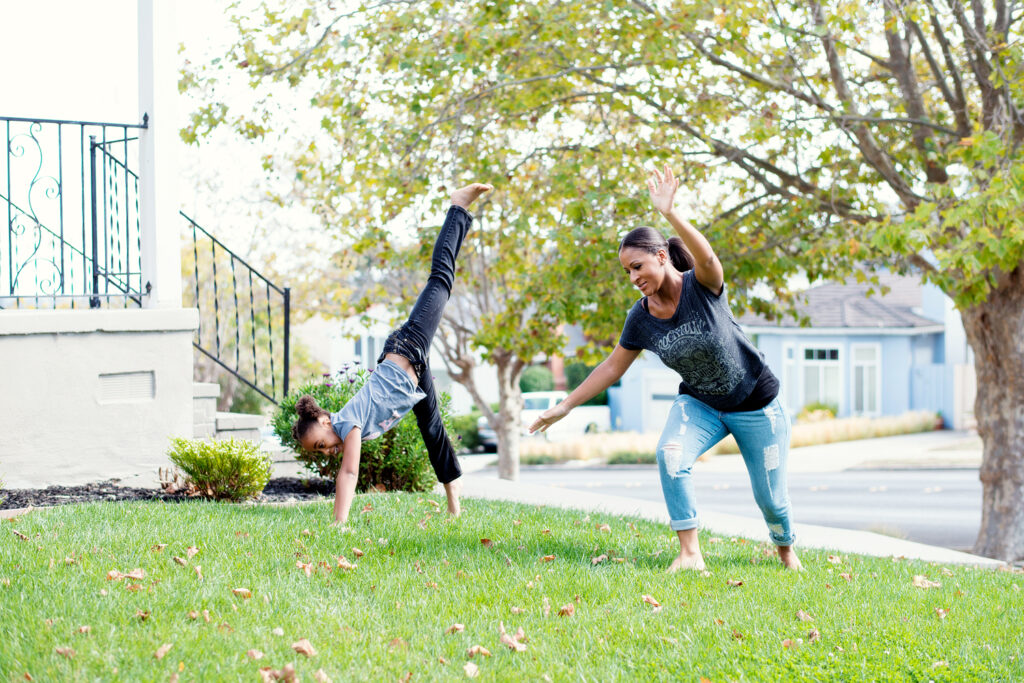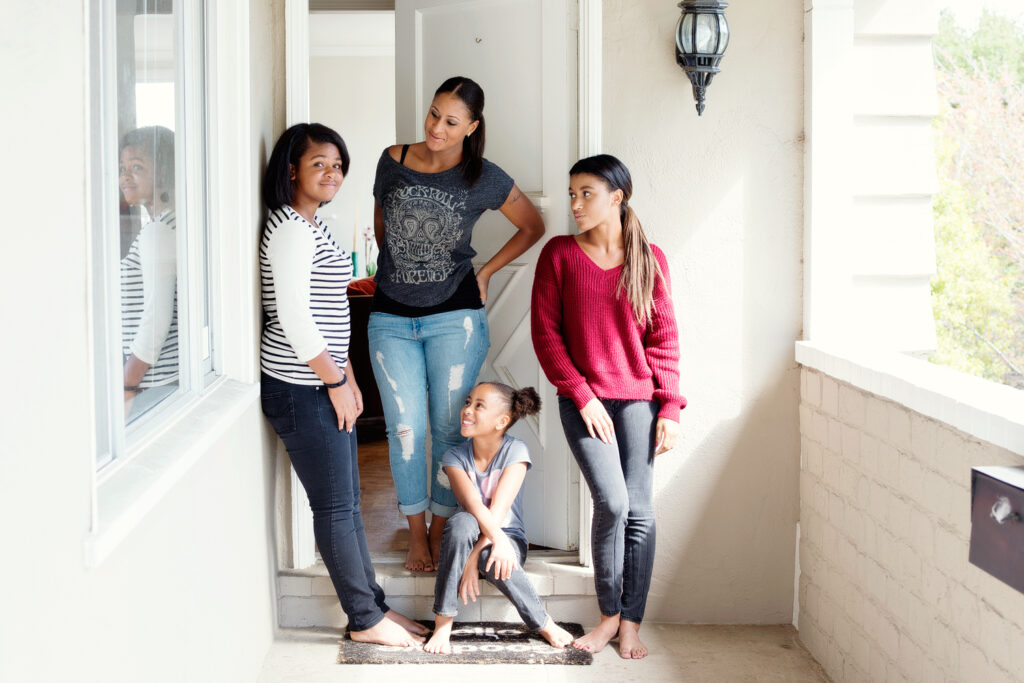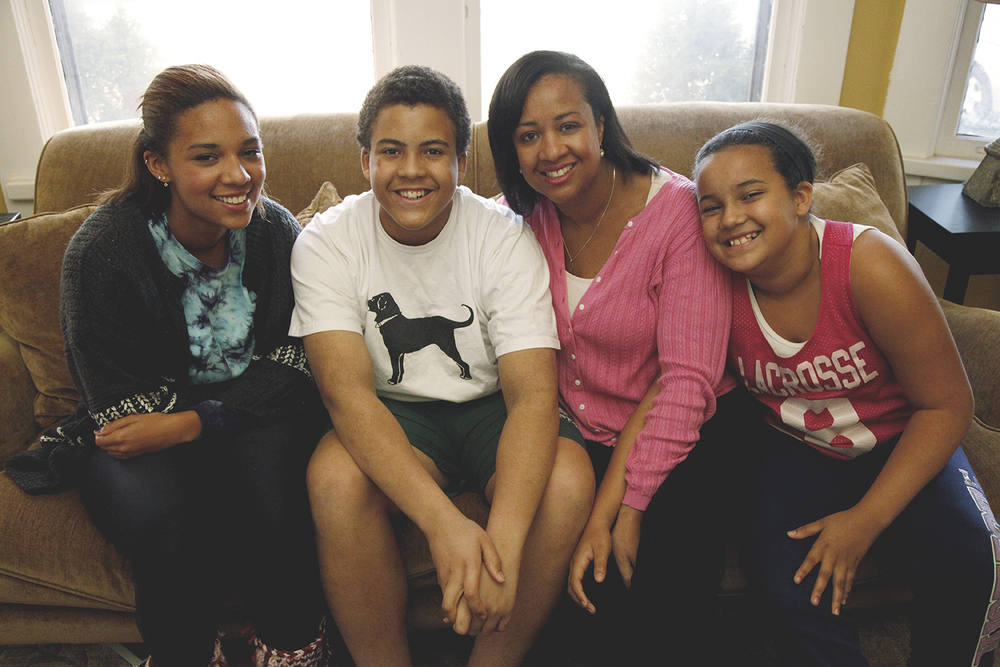Angela Benton is one of the more well-known names in the ongoing struggle to bring more diversity to Silicon Valley’s tech and startup worlds. She’s helped minority entrepreneurs raise more than $17 million through her ventures, a fact that becomes all the more impressive when you consider that at 15, she was pregnant and facing a lot of judgment for deciding to keep her daughter. Benton tells mater mea why she has always followed her gut when it comes to parenting and entrepreneurship.
Many people are trying to increase the visibility of minorities in tech and Silicon Valley. And Angela Benton, 33, is one of the leaders who has been beating the drum the loudest and for the longest.
Some may know her from her late-aughts blog (now called B20), which was one of the few, if not only, outlets covering black tech newsmakers; others may be familiar with , which has helped minority entrepreneurs raise almost $17 million in funding. Along with managing these two companies, the mother of three daughters—Ava (7), Kaiya (13), and Asha (17)—is regularly featured in The Wall Street Journal, Forbes, and CNN discussing diversity, startup culture, and the future of entrepreneurship.

But ask Angela Benton to pick an accomplishment she’s most proud of, and the entrepreneur pauses. “Everything has been great,” she allows, “and I feel like we still have a lot of work to do. I just feel like I’m in the middle. I’m not at the end yet. Everything up to this point hasn’t been expected at all, you know?”
As a woman who found out she was pregnant with her first child at 15, Benton’s success flies against most people’s expectations. But the same steadfastness that guides her in her businesses also led her to where she is today.

Angela Benton had her daughter Asha a month after she turned 16 (she graduated high school early, thanks in part to a daycare program at her school). A creative at heart, Benton got her BFA in visual communications from American Intercontinental University, and then went on to get an MFA in graphic design at Savannah College of Art and Design.
These years were full of personal milestones, too: Her middle daughter Kaiya was born when she was 19, she got married when she was 20, and had her youngest daughter Ava when she was 24. Though the marriage ended in divorce when she was 26, “I [have] a lot of peace about a lot of the decisions I was making at that time,” she says now. “That was really young to get married.”

Ever the hardworker, Angela Benton was also freelancing and doing free web design work for companies to build her portfolio. Her experience led to a job in LendingTree.com’s creative group, where she worked on everything from marketing to product development to web design. It was here that Benton got firsthand experience with the issues that inform her work today.
“Something was wrong on the back end” of the site, Benton recalls. “[And this guy] questioned the front end of my work in this massive email [to] a lot of people. I’m like, Why would he automatically come to me, like I did something wrong? Of course—[I’m] the only black person, the only black [woman], at all. That was just kind of disheartening.”

Angela Benton looked online to see if anyone was discussing the industry issues she was beginning to experience, but came up short. So she did what many entrepreneurs-in-the-making do: She created something of her own.
Black Web 2.0 launched in 2007 with little fanfare, but quickly attracted a respectable number of readers who came to depend on Benton’s writeups of African-American media properties, tech, and digital strategy news.
“The site got a lot of traction,” Benton says. “I got a lot of emails from folks saying, ‘Oh my gosh, I was thinking about doing something like this. This is so needed.’”


Shortly after starting Black Web 2.0, Benton and her friend and fellow entrepreneur Markus Robinson realized something else was needed—“a solution to why you don’t see more African Americans as success stories in the technology industry,” she says. In 2010 Black Web 2.0 put on summit in Washington, D.C. to discuss this gap; it was there that tech entrepreneur Don Charleston made a suggestion that led Angela Benton to her next venture: an accelerator program for minorities. In the startup world, accelerator programs offer entrepreneurs seed capital, office space, educational programming, and access to investors and mentors in exchange for company equity. Many of the world’s most well-known companies—most notably Airbnb and Dropbox—found their footing in accelerators.
“I remember [saying], ‘That’s a really good idea,’ but thinking, That sounds like a lot of work,” Benton says, laughing.

But she came back to the idea a few months later, and started pitching it to her connections at companies like Google and Facebook, who were early supporters of what would become the .
“At first I had no idea what people were going to say,” she says. “I definitely felt like we were going to get snubbed. I felt like people were going to think it was racist. But … when we explained what we were trying do, [people] were like, ‘Oh yeah, count me in.’”

Her first cohort of 13 companies started in June 2011 (eight of which were profiled in a CNN documentary) out of a rented home in San Francisco. Both Benton and the startup founders learned a lot that first go round.
“I didn’t have a business plan,” Angela Benton admits. “It was so scrappy. We were just kind of going with the flow at first. But after [the CNN documentary aired], I got a lot of questions, so I had to really figure out what the business model would be for it. I had to do a lot of soul-searching for about a year.
“I talked to a lot of different people and I got a lot of different advice,” she continues. “[But] the advice was for what was already in existence. It just didn’t sit right [with me], so I had to figure out what I wanted it to be.”
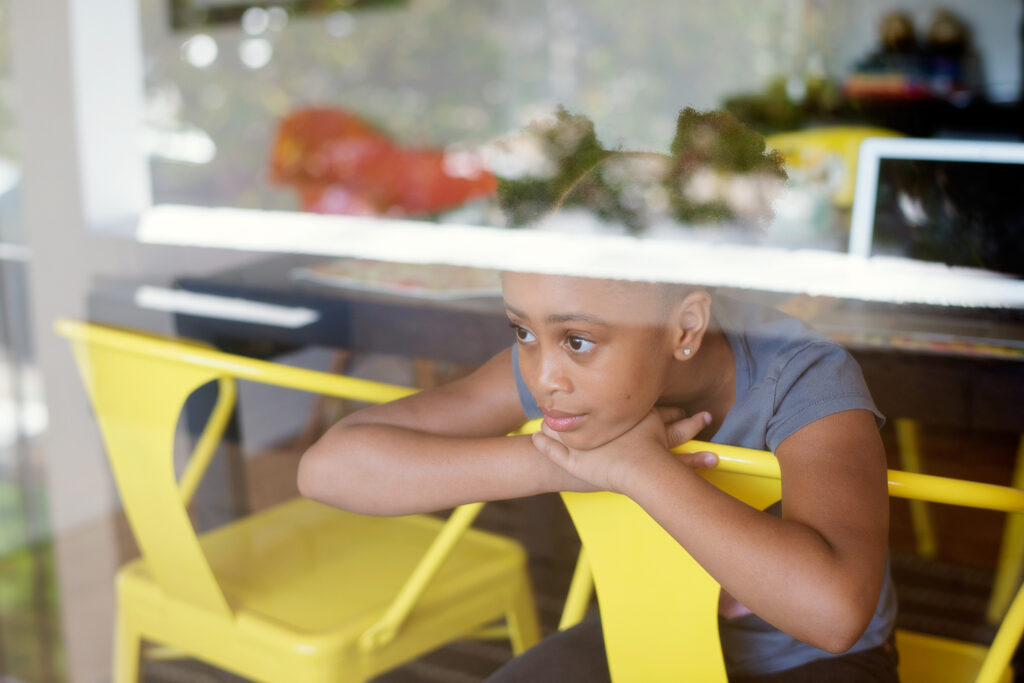
Now, almost four years later, Angela Benton has a pretty good idea of what NewME is: It helps minority entrepreneurs sidestep one of the biggest barriers to entry in the tech industry.
“The technology industry can be [like] high school in a sense,” Benton explains, “meaning if you aren’t vouched for by somebody else who has credibility, it’s kind of hard to get in the door.” NewME provides that stamp of approval with its multi-service platform. There’s the 12-week residential program for early-stage companies; an elite version of the program for startups that are further along; a virtual accelerator, which allows the company to work with more than 150 people around the world; intensive, targeted programming; and private coaching.
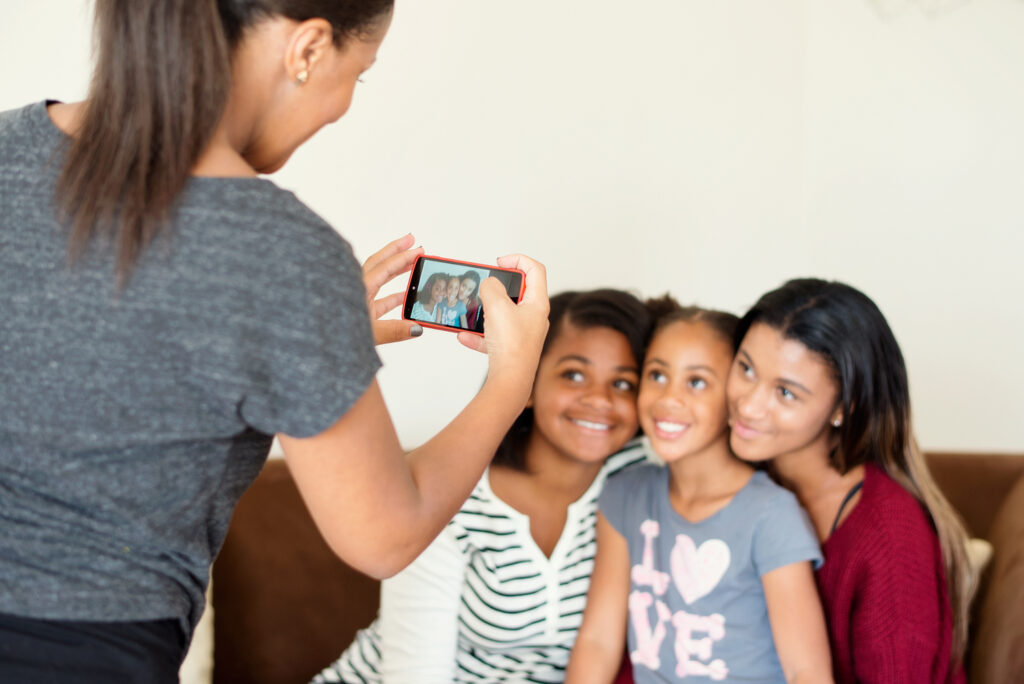
With more than $17 million raised, and plans to expand NewME internationally, Benton has more than established her place as patron saint of minority entrepreneurs. It’s a position she’s now comfortable with occupying.
“I never expected it to happen to begin with,” she says. “So the fact that it’s even happening, it’s like a dream.”
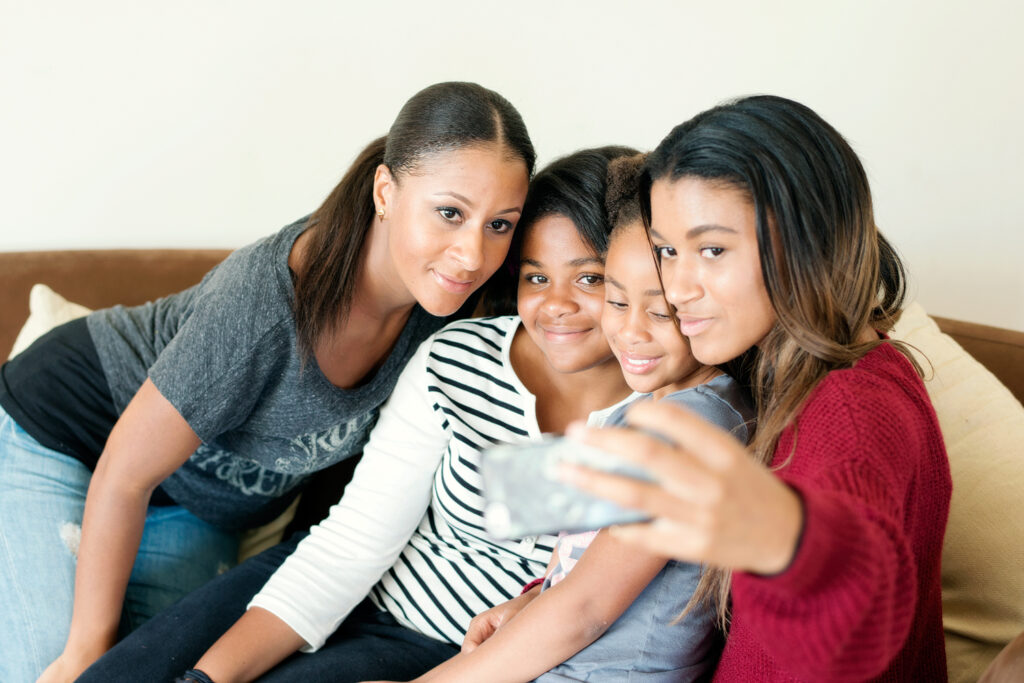
Q&A
YOU BECAME A MOM AT SUCH A YOUNG AGE. WHAT WERE YOUR THOUGHTS WHEN YOU FIRST LEARNED YOU WERE GOING TO BE A MOM AT 15?
I really felt like I had to make a decision. I wasn’t scared, per se; I think I had accepted it. Of course, people will try to change your decision—”Oh, you’re so young,” “Oh, your life is going to be so hard”—and really try to convince you to get an abortion. Even though I was 15, I really followed my intuition, and my intuition was telling me that that’s not the way that I should go. So I just kind of followed that.

WAS THERE ANYTHING ABOUT YOUR OWN CHILDHOOD THAT MADE YOU MORE TRUSTING OF YOUR OWN INTUITION? WE WOULD IMAGINE THAT’S SUCH A HARD THING TO HEAR—SO MANY PEOPLE TELLING YOU TO DO ONE THING.
It was a hard thing to hear, but it also really made me more determined, honestly. It just made me feel like I had something to prove. It’s not even what people say, it’s almost how they say it to you. It’s a lot of pity, and I didn’t feel like I needed to be pitied. It’s not to say I was excited about it; I knew that my life was going to change. But I was also at peace with the decision.
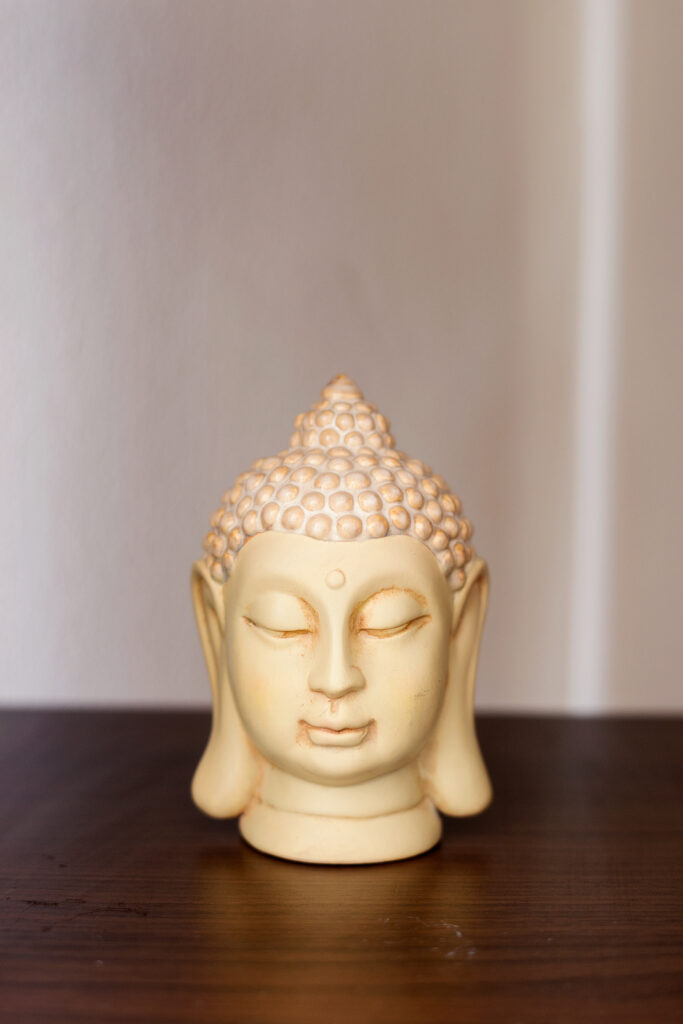
HOW HAS BEING A MOM CHANGED YOUR LIFE?
Being a mom really defines my life, and it’s because I had kids so young. My whole adult life has always been shaped around kids. For most women, they’ll have a career and all this other stuff ahead of time and they’ll have to adjust to having kids. For me, it’s the opposite.
You can spend a lot of time [thinking] what would my life be like if I didn’t have a child when I was so young. I really can’t say that I know what it would be like. I don’t know if I would have ended up any better than I am now. I think the whole situation was actually a great blessing. It just taught me a lot about myself and it me a lot about hard work.

HOW WOULD YOU DESCRIBE YOUR DAUGHTERS’ PERSONALITIES?
My oldest one [Asha] is very, very creative. She’s just naturally talented. She just does all kinds of stuff and it’s all really good.

My middle one [Kaiya] is very intellectual and she has a dry sense of humor. She’s very witty, very, very naturally smart. [She] is quiet. If it’s me and her in the house alone, I’ll feel like I’m in the house by myself. She reads books, she plays video games.
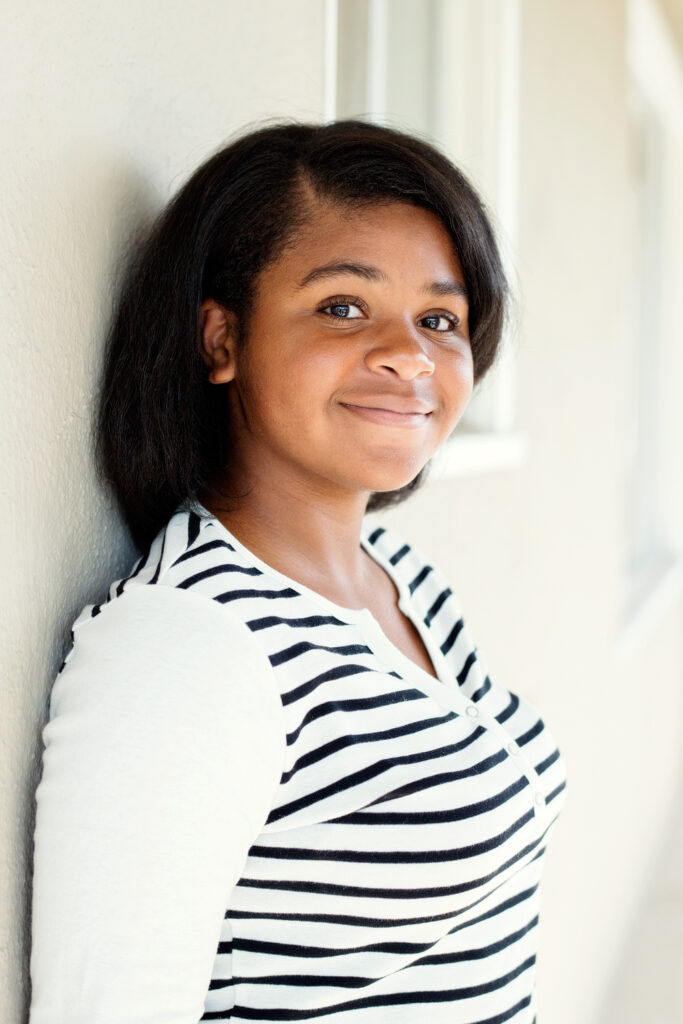
[Ava], my youngest one, is very sweet and very loving. I’ll get home from and she’ll wander into my room, [ask] “How was your day?”, and she’ll rub my back. My oldest and my youngest are very, very girly. They want to talk about nail color and makeup and music and dance.

WHAT’S THE BIGGEST CHALLENGE YOU’VE FACED AS A MOM?
Definitely work-life balance. It’s less stressful if you try not to plan as much—when I plan too much, that’s what actually stresses me out more than anything. [With] our age difference, [my oldest daughter and I are] close but sometimes because we’re so close in age, she crosses the line. I have to basically check her, like, “I’m still your mom.” So that’s hard.
What was really hard—and actually, this continues to be hard—is dealing with the schools as a young mom. A lot of times, if you’re young, they’ll assume that you don’t know as much as you know about the curriculum or just the process at a certain grade level. So a lot of times, I’ll just have to be very direct with the teacher.

THAT’S A REALLY GOOD POINT, THAT PEOPLE WOULD ASSUME SO MUCH AND CARRY THAT INTO THE WAY THEY TREAT YOU, AND IN TURN, THE WAY THEY TREAT YOUR KIDS.
Yeah, definitely. It’s interesting, now that we’re in California, how the school systems are here versus the East Coast. Not a lot of moms work in the neighborhood that I’m in. So when I travel a lot, my kids’ teachers notice. Especially my youngest one, because she’s still in elementary school.
I’ll go to parent-teacher conferences and I mean, it’s that same kind of tone of pity, almost. “I know it must be hard that you travel a lot.” And I’m like, “I have this under control. You don’t have to worry about how hard it is for me.” Or she’ll say certain stuff like, “Okay, well, in third grade this is what we do,” and I’m like, “I’ve been through third grade twice before.”
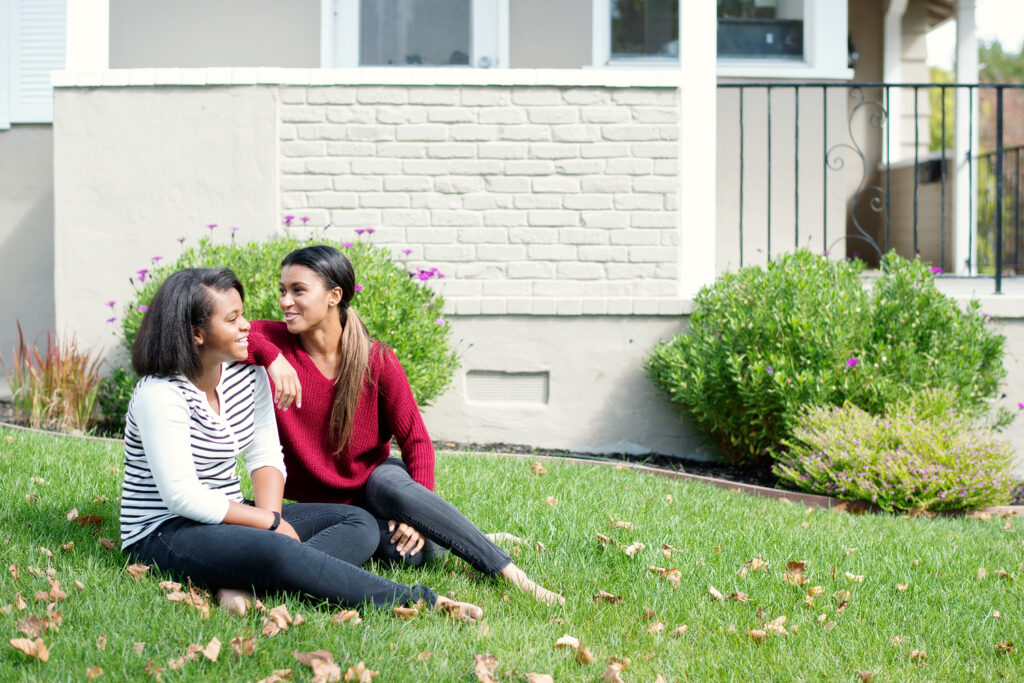
WHAT KIND OF SUPPORT SYSTEM DO YOU HAVE IN PLACE? HOW DO YOU KEEP EVERYTHING GOING?
Well, a good nanny will help. I don’t have a nanny every day of the week. I mainly use her for when I travel. I normally will drop them off in the morning, then she’ll come and pick them up and stay overnight. And she’s great. She’s from East Africa, so any time I come back, my youngest’s hair is braided [and] I don’t have to worry about doing her hair. (Laughs)
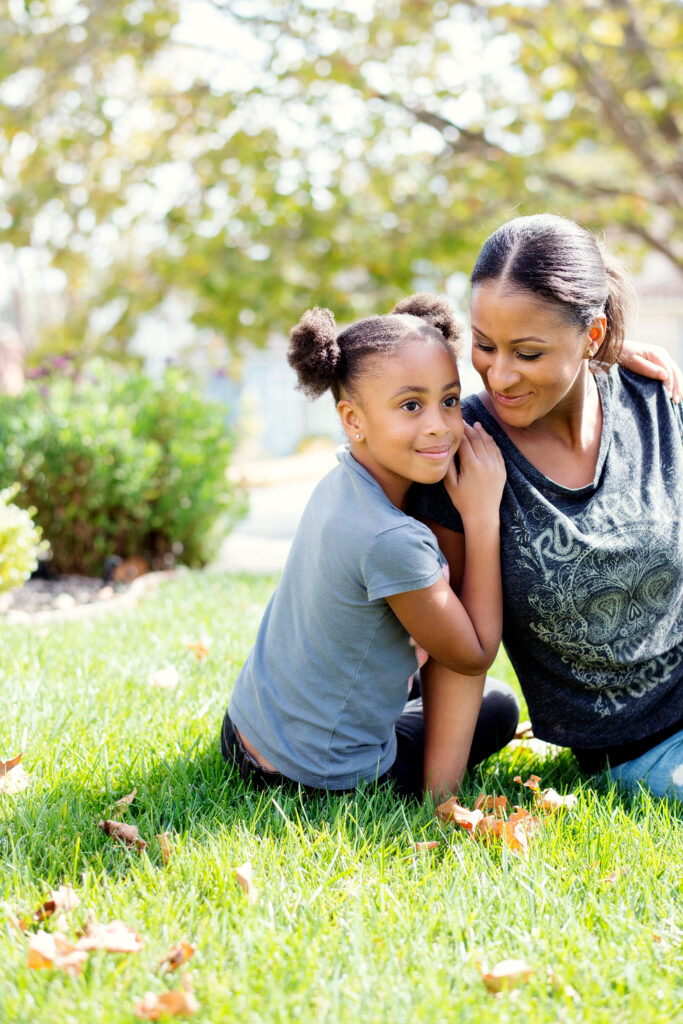
WHAT PERSPECTIVE OR EXAMPLE DO YOU HOPE TO IMPART ON YOUR DAUGHTERS THROUGH YOUR WORK?
I really hope that they’re not stuck in a job and are like, “What am I doing here?” I hope that they can find their passion and be able to work on that. That it’s fun, and it’s like you’re not working every day.

WHAT KIND OF WOMEN DO YOU HOPE YOUR DAUGHTERS BECOME?
I hope they become strong women, but more than anything, I want them to be women who are comfortable being themselves and in their own skin, whatever that might be.
